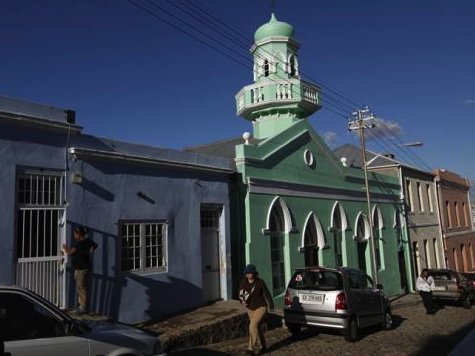When I lived in Cape Town, South Africa, I occasionally listened to the local Islamic radio station, partly out of curiosity and partly because it was often left on in the background in the living room of the Muslim family with whom I was boarding. (They were, and are, wonderful people who took me in at some cost to their relationships with certain relatives of an anti-Jewish persuasion.)
The station was actually two stations sharing the same frequency on alternate days. One was rather docile and the other quite fundamentalist, politically and religiously So whether you got moderate or radical Islam depended on what day of the week it was.
One day, I happened to be driving in the area with the Islamic station on my car radio (I forget whether it was a moderate or radical day, but it could have been either) during a children’s program, and I heard something quite striking.
The song that was playing was a pleasant little pedagogical ditty about the four archangels of Islam, and their functions. The last line named the fourth: “Izra’il is for death.”
Sure enough, the Islamic Angel of Death has a name, and that name is very close to the Hebrew word “Israel,” which is also the name for the contemporary Jewish nation-state, the frequent object of Islamist outrage.
Perhaps I simply haven’t looked hard enough, but I have yet to discover any reference that comments on this extraordinary, and perhaps powerful, coincidence–that the State of Israel shares a name, roughly speaking, with the Islamic Angel of Death.
The roots of Islamic discrimination against Jews seem to be quite separate from this linguistic problem (though ancient Jews also referred to themselves as the children of, or nation of, Israel), and today’s contemporary Islamic antisemitism borrows much from 19th- and 20th-century Europe, which was more concerned with pseudoscientific racial theories than theological Jew-hatred.
Still, it seems that it would certainly be easier to foment hate against a people and a country with a dreaded name.
The word “Israel” comes from the Old Testament, and is the name bestowed upon Jacob by an angel with whom he wrestles all night before returning to the land of Canaan to face his brother. It refers to a struggle with God: “And he said, ‘Your name shall no longer be called Jacob, but Israel, because you have commanding power with [an angel of] God and with men, and you have prevailed.'” (Genesis 32:29) It represents a profoundly Jewish idea that human existence is defined by a positive moral struggle with both the earthly and heavenly worlds, that life is a constant test of will and search for truth. It has nothing to do with death, destruction, or any of the things that attend the archangel Izra’il in Islamic theology.
It is one thing to remove anti-Israel and anti-Jewish incitement from Palestinian textbooks and media, but quite another to deal with a fixed theological concept such as the names of the archangels.
Again, there is little to suggest that the very name, “Izra’il,” has anything to do with the Jewish people as such, but it is no stretch to imagine that the etymological coincidence might condition successive generations of Muslims to see Israel in a sinister light.
It is a problem for which there is no answer, because the name “Israel” is just as central to Jewish identity (even if it was not clear, until independence, that the state itself would adopt the Biblical name that recurs throughout the daily liturgy of Jewish prayer).
A fateful, unfortunate coincidence.

COMMENTS
Please let us know if you're having issues with commenting.